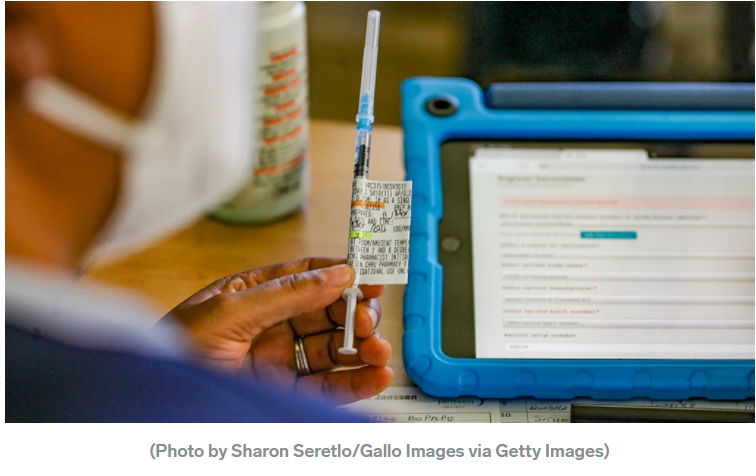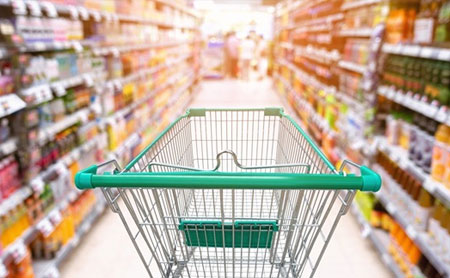- Phase two of South Africa’s Covid-19 vaccination drive is expected to start in mid-May and finished by November 2021.
- During this time, the department of health aims to vaccinate approximately 16.6 million people.
- First in the queue are people over the age of 60, who can already register for their jabs through government’s online portal.
- Essential workers, those in congregate settings and persons over the age of 18 with co-morbidities are also included in phase two of the rollout.
- For more articles, go to www.BusinessInsider.co.za.
Everyone older than 60 years in South Africa may now register for their Covid-19 vaccine on government’s Electronic Vaccination Data System (EVDS).
This group accounts for almost 60% of all reported Covid-19 related deaths in South Africa, according to the National Institute for Communicable Diseases.
According to a report presented to parliament’s portfolio committee on health by health minister Zweli Mkhize this week, it is estimated that 40,000 deaths will be prevented by vaccinating 5.5 million people older than 60 years. "Every 140 vaccinations completed, will save one life and many more hospitalisations,” the report states.
The EVDS is expected to allow others to register for phase 2 of the vaccination programme in the next weeks.
Persons in congregate settings
Approximately 1.1 million vaccinations have been allocated to persons in congregate settings, due to the high risk of infection associated with crowds and large social gatherings. This includes people who work in old age homes and care facilities, as highlighted by the parliamentary report.
Other examples of persons in congregate settings who are eligible to be vaccinated during phase two of the rollout include faith-based leaders, teachers, correctional officers, and social workers. Workers in the hospitality and tourism industry have also been included in this phase.
It’s important to note that there is overlap between persons in congregate settings and essential workers. Non-essential office-based workers are not currently listed as persons in congregate setting prioritised for vaccinations in phase two.
Essential workers
Essential workers are defined as persons whose jobs ensure the social and economic stability of the country. Services provided by these workers, as noted by the Labour Relations Act, include ensuring the health and safety of the South African population. This definition has, however, within the context of Covid-19 lockdown and vaccinations, been expanded.
Approximately 2.5 million essential workers are targeted in phase two of the rollout. The parliamentary report includes a list of public sector workers defined as “essential” but notes that the list is “not exhaustive” and is likely to be updated. Essential workers listed include:
- Police
- Army
- Traffic Officers
- Correctional Officers
- Teachers (particularly in Early Childhood Development)
- Social workers
- Municipal workers
- Community based workers
- Home Affairs
- South African Social Security Agency (Sassa) officials
- Faith Leaders
- Traditional leaders
- Traditional healers
Private sectors which are being considered as employing essential workers, include:
- Agriculture (formal and processing plants)
- Mining
- Manufacturing (clothing and steel)
- Utilities (water, gas, and electricity)
- Construction
- Trade (retail, hotel, restaurants, spazas, and shebeens)
- Transport (airlines, rail, taxis, trucks, and busses)
- Finance (banks, insurance, burial clubs, and stokvels)
Government also notes that workers over the age of 40 will be prioritised.
Persons over the age of 18 years with co-morbidities
Persons older than 18 with existing co-morbidities – which place them at higher risk of hospitalisation or death when infected with Covid-19 – are also included in phase two of the rollout. Some eight million people are expected to be in this category.
Co-morbidities listed by the health department and the South African Medical Journal include:
- Hypertension
- Diabetes
- Hypercholesterolaemia (high cholesterol)
- Chronic cardiac disease
- Chronic lung disease
- Chronic renal disease
- HIV
- Active tuberculosis
- Obesity
Government plans to start vaccinating the elderly, essential workers and persons with comorbidities against Covid-19 by mid-May.
South Africa’s vaccine rollout has been fraught with disruptions. Amid global vaccine shortages, bilateral procurement problems, the emergence of evasive Covid-19 variants and recent health concerns, South Africa has only managed to vaccinate almost 300,000 frontline healthcare workers.
Phase one of the rollout aims to have 1.2 million frontline healthcare workers vaccinated by 17 May 2021. That requires an average daily vaccination rate of almost 30,000.
The stop-start nature of South Africa’s rollout began in February. The use of the AstraZeneca vaccine was abandoned just a week after one million doses touched down in South Africa. The Johnson & Johnson vaccine, lacking the necessary authorisation in South Africa, was quickly introduced as a substitute in the form of a real-life study under the banner of the Sisonke Protocol.
But on 13 April, use of the Johnson & Johnson vaccine, which aimed to vaccinate 31 million South Africans, was also suspended due to concerns around blood clots raised by US authorities.
Despite these setbacks, South Africa is expected to receive its first shipment of the Pfizer-BioNTech vaccine in the first week of May. The arrival of these doses coincides with South Africa’s plan to begin phase two of the rollout, which will now overlap with the immunisation of healthcare workers targeted in phase one.
Read the full article HERE





